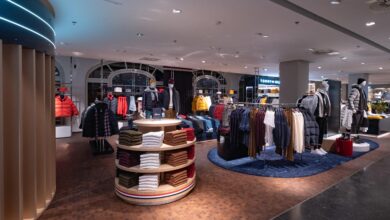Marketing Strategy for Loveco

Marketing and Branding of Loveco
Marketing and branding are essential components of the success of any business, and Loveco is no exception. Here are some potential topics to explore in order to examine Loveco’s marketing and branding in more detail:
- Brand Identity: What is Loveco’s brand identity, and how does the company’s branding and messaging strategy appeal to customers interested in sustainable fashion? How does the company differentiate itself in terms of brand identity from other sustainable fashion brands? Social Media
- Presence: How does Loveco use social media platforms like Instagram, Facebook, and Twitter to connect with its target audience and promote its products? What type of content does the company share on these platforms, and how effective is this content in engaging customers? Influencer
- Partnerships: Has Loveco collaborated with influencers or celebrities to promote its brand and products? What has been the impact of these partnerships, and how effective have they been in reaching new audiences?
- Advertising Campaigns: What types of advertising campaigns has Loveco launched, and how have customers responded to these campaigns? How does the company measure the success of its advertising efforts?
- Packaging and Presentation: How does Loveco present its products, and what type of packaging does the company use? How does the packaging and presentation align with the overall brand messaging strategy and commitment to sustainability?
- Brand Ambassadors: Does Loveco work with brand ambassadors or supporters to help promote the company and its products? What role do these individuals play in the overall marketing strategy of the company?

By exploring these and other related topics, you can gain a better understanding of how Loveco approaches marketing and branding in the sustainable fashion industry.
Target Audience of Loveco
Loveco’s target audience consists of individuals interested in sustainable fashion who are seeking high-quality, environmentally friendly clothing, footwear, and accessories. Specifically, Loveco appeals to customers who are conscious of the ecological impact of their purchases and are willing to pay a premium price for sustainable and ethically produced products.
Loveco’s target audience typically includes younger, socially conscious consumers who are interested in the latest fashion trends but also want to make a positive impact on the world. Loveco’s products are designed for both men and women, and the company offers a variety of styles to cater to different tastes and preferences.
In addition to individual consumers, Loveco also targets businesses and organizations that are looking for sustainable clothing and accessories for their employees or events. By offering customizable products and services, Loveco reaches a broader audience and expands its customer base.

Partnerships and Collaborations of Loveco
Loveco has established partnerships and collaborations with a range of companies and organizations that are committed to sustainability and ethical business practices. Here are some examples:
- Armed Angels: Loveco is a stockist of Armed Angels, a sustainable fashion brand that uses eco-friendly materials and fair labor practices for producing its clothing. The partnership allows Loveco to offer a wider range of sustainable fashion products to its customers.
- Sustainable Fashion Week Berlin: Loveco has collaborated with Sustainable Fashion Week Berlin, an organization that promotes sustainability in the fashion industry. Loveco has participated in the organization’s events, such as fashion shows and panel discussions, to raise awareness about sustainable fashion and promote its own products.
- RePack: Loveco has collaborated with RePack, a reusable packaging service, to offer customers a more sustainable shipping option. Customers who choose RePack packaging can return it to Loveco, which then sends it back to RePack for cleaning and reuse.
- Fair Wear Foundation: Loveco is a member of the Fair Wear Foundation, an organization that works to improve working conditions in the garment industry. The partnership demonstrates Loveco’s commitment to ethical business practices and gives customers confidence that the company advocates for fair treatment of workers.
By collaborating with like-minded companies and organizations, Loveco can amplify its message and expand its reach in the sustainable fashion space. These collaborations also allow Loveco to access new resources and technologies that can contribute to its mission of revolutionizing the textile industry sustainably.

Metrics and Analytics of Loveco
As a successful sustainable fashion brand, Loveco tracks various metrics and analytics to measure the success of its marketing and branding efforts. Here are some examples of the types of metrics Loveco could track:
- Revenue: Loveco tracks its revenue to determine the overall success of its marketing and branding initiatives. By monitoring revenue trends over time, the company can identify which marketing strategies are most effective at driving revenue growth.
- Website Traffic: Loveco tracks the number of visitors to its website as well as the sources of that traffic (e.g., search engines, social media, direct traffic). This helps the company understand which marketing channels are directing the most traffic to its site and which pages or products are most popular among visitors.
- Conversion Rate: Loveco tracks the percentage of website visitors who make a purchase, also known as the conversion rate. By monitoring this metric, the company can identify areas of its website or sales funnel that may need improvement.
- Social Media Engagement: Loveco tracks engagement metrics on its social media channels, such as likes, shares, comments, and follower growth. This helps the company understand which types of content resonate best with its audience and can inform future social media strategies.
- Customer Feedback: Loveco collects feedback from its customers through surveys, reviews, and other channels. This feedback can provide insights into customer satisfaction levels, product quality, and areas for improvement.
By tracking these and other metrics, Loveco can gain a deeper understanding of its customers, its marketing and branding efforts, and the overall success of the business. This data can help the company make more informed decisions about its marketing strategies, product offerings, and sustainability initiatives.




